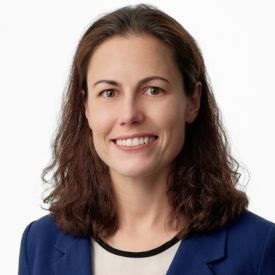 Diana Anderson, MD, M.Arch, FACHA
Diana Anderson, MD, M.Arch, FACHA
Dochitect
Dr. Anderson is a unique triple boarded professional – healthcare architect (ACHA-American College of Healthcare Architects), internist, and a geriatrician (American Board of Internal Medicine). As a “dochitect,” she pioneered a collaborative, evidence-based model for approaching healthcare from the medicine and architecture fields simultaneously. She has worked on hospital design projects globally and is a frequent speaker about the impacts of healthcare design on patient outcomes and care delivery.
A Co-Founder of Clinicians for Design, this international network of leaders seeks to inspire and accelerate the design of environments and systems. A past Fellow of the Harvard Medical School Center for Bioethics, she explores the ethics of built space. Her publications include numerous peer-reviewed articles, medical textbook chapters, podcasts, and news and media contributions (including The New York Times, Metropolis, Bloomberg Press, etc.).
She is currently an Assistant Professor of Neurology at Boston University, and a recipient of an Alzheimer's Association Clinician Scientist Fellowship. She is a healthcare principal at Jacobs, contributing her thought leadership at the intersection of design and health. Dr. Anderson was recently elevated to the Council of Fellows within the ACHA for her contributions to the profession.
 Carla Johnson
Carla Johnson
Innovative Architect, Best-selling Author, RE:Think Innovation
No longer is the status quo the sure bet. In today’s world, standing still makes you a sitting duck. Disruption’s inevitable. But if anyone’s going to disrupt your company, shouldn’t it be you?
As the world’s leading Innovation Architect, Carla Johnson has spent 20 years working with leaders, conducting research and authoring numerous books. She’s developed frameworks that teach people how to redefine what innovation means to them, and then equips leaders to make innovation everybody’s business.
Carla’s approach transforms organizations by fusing visionary creativity with pragmatic innovation strategies. The result is a culture that becomes a playground of limitless potential while also experiencing unprecedented growth and alignment.
 Kristina Krail, RN, NEA-BC, FACHE, PMP, EDAC
Kristina Krail, RN, NEA-BC, FACHE, PMP, EDAC
Healthcare Consultant + Transition Advisor, KRAIL ADVISORY
Kris is an accomplished healthcare leader who has served the industry through a variety of high-level administrative positions including as a CNO, hospital association executive, and consultant. She understands first-hand the challenges healthcare leadership faces and has always demonstrated the ability to inspire and help them create plans and take action – always with the goal to improve patient care through innovative environmental and system solutions.
Now as sole proprietor of Krail Advisory, a certified New York State WBE, she uses her proven problem-solving skills, deep understanding of the hospital/healthcare industry, and certified project management capabilities to assist healthcare clients in their design requirements during this dynamic and complex era.
Kris continues to be active in several professional organizations, including the American College of Healthcare Executives, and has served NIHD as a board officer for the last 4 years.
 Bonny Slater, CHID, ASID, LEED AP
Bonny Slater, CHID, ASID, LEED AP
Healthcare Leader, Design Director, Senior Associate, Gensler
Bonny Slater is a Co-Global Healthcare Practice Leader and Design Director at Gensler. She has spent 20 years creating inspiring environments to support health and wellness for diverse populations. With a background in design and environmental psychology, she brings a unique perspective and research-driven approach to crafting meaningful experiences by supporting physical, cognitive, emotional, and spiritual needs.
Bonny’s Research has included the study of color in immersive environments, design considerations in behavioral health facilities, and the cultural implications of evidence-based design. Her recent work focuses on the connections between engagement, design, and population health in vulnerable communities. Bonny’s research has been featured in Contract and Metropolis magazines and have garnered national recognition through ASID’s Outcome of Design Award and The Caritas Project’s Generative Space Award.
An active Thought Leader, Bonny has presented her research at national conferences including Healthcare Design, Healthcare Facilities Symposium, and NeoCon, and is a frequent contributing writer to Gensler Dialogue and former editor of Contract’s “Designing for Health” online series.
As a Designer, Bonny’s work has included academic medical centers, community health centers, foreign hospitals, and prototype wellness facilities. Her work has been featured in Metropolis, Contract, Healthcare Design and Architectural Record. In addition to various project awards, in 2018 Bonny was honored as an ASID Ones to Watch Scholar and Design Excellence award recipient.
 Seth Starner
Seth Starner
Director of Design Research, X-lab at Crowe
Seth Starner is director of design research for the X-lab at Crowe. He is responsible for helping clients across the business spectrum uncover actionable insights that lead to new value. Before Crowe, Seth led Advanced Explorations for Steelcase Health. Space and experience design are often forgotten when it comes to rethinking healthcare. Seth, through the tools of Human Centered Design, translated current and future trends into experiments, tests and pilots in healthcare settings. Seth has led teams in the US, W. Africa, Asia, Latin America and W. Europe in creating & testing new experiences and business models that have led to new ways of doing things. Seth has a B.A. in political science & economics from the University of Michigan and a Masters in Design from the Illinois Institute of Technology’s Institute of Design.
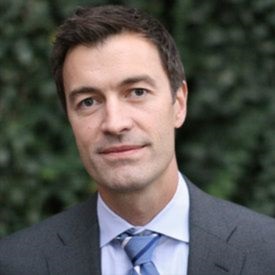 Jordan Cram
Jordan Cram
Chief Executive Officer, Enstoa
Jordan Cram, CEO of Enstoa, Inc., is a visionary leader who emphasizes the transformative power of technology for continuous innovation and optimized performance. Over 25 years, he's guided organizations worldwide to strategically improve operations. Now, he's at the forefront of integrating AI to augment the workforce, unlocking new organizational structures and processes.
Jordan coaches executives on leveraging AI agents to enhance productivity, driving smarter decision-making and innovative strategies. His digital transformation visions have delivered substantial results, including $20 million in savings for a New York City hospital and $15 million within a year for an oil and gas organization.
He pioneered agile consulting in capital projects, infrastructure, and asset management, prioritizing data-driven insights. He builds diverse, high-performing teams that blend industry expertise with business and IT acumen, ensuring clients can achieve breakthrough outcomes with AI and strategic technology solutions.
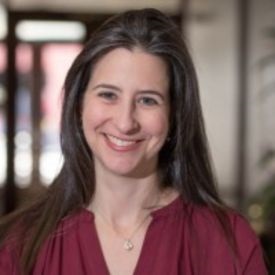 Corie Baker, AIA, EDAC, LEED AP, BD+C, WELL AP, Fitwel Ambassador
Corie Baker, AIA, EDAC, LEED AP, BD+C, WELL AP, Fitwel Ambassador
Market Vice President, Healthcare, Gresham Smith
Corie Baker is the Market Vice President, Healthcare for Gresham Smith as well as a Project Executive and Senior Architect. She has 18 years of experience creating healthcare facilities that meet clients’ needs and improve the health of the communities they serve. Corie also serves as one of the Sustainability Leaders for Gresham Smith’s Architecture practice and has served as LEED Administrator and Fitwel Ambassador for numerous projects across the firm. She earned her Master of Architecture of the University of Maryland.
 Hillary Earl Crosby, AIA, NCARB
Hillary Earl Crosby, AIA, NCARB
Owner, Earl Architects
Hillary Earl Crosby, AIA NCARB is a Healthcare Architect and owner with Earl Architects, a family business with a legacy of over 35 years specializing in healthcare design.
Her work experience encompasses a range of healthcare projects throughout the nation and abroad, including award-winning and nationally published hospital designs within the industry. Her design for Carteret Health Care’s Specialty Pavilion was featured in Healthcare Design Magazine’s 2015 Annual Design Showcase and also a featured cover story.
In the past year, she was a guest lecturer at the 2023 National Healthcare Design Conference, presenting on the topic “Rural Emergency Hospital: The Future of Promoting Equity and Access to Care.” In addition, her article “Care Where It’s Needed” was featured in Healthcare Design Magazine, September 2023 issue.
Her professional involvement outside of Earl Architects includes serving on the Board of Directors for the South Carolina Ovarian Cancer Foundation.
She is a Greenville, South Carolina native, Clemson and Savannah College of Art and Design alumni, and a passionate advocate for patient-centered care and community-based health.
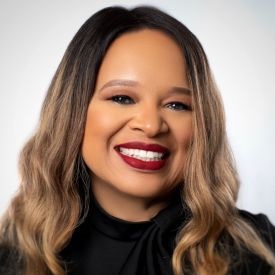 Kimberly McElroy-Jones, PhD, DMin, MHA, M.S.,B.S. FACHE
Kimberly McElroy-Jones, PhD, DMin, MHA, M.S.,B.S. FACHE
Vice President of Diversity, Equity and Inclusion, Eskenazi Health
Dr. Kimberly McElroy-Jones is the Vice President of Diversity, Equity and Inclusion at Eskenazi Health working with the Social Determinants of Health team. Dr. Kim earned her Bachelor of Science degree in Organizational Leadership and Supervision from Indiana University - Purdue University at Indianapolis in 2001. In addition, she earned a Master of Science degree in Adult Education from IU Indianapolis in 2004 and a Master of Health Administration degree from the University of Southern Indiana in 2013. Dr. Kim also earned a Ph.D. in Organization and Management at Capella University in Minneapolis, Minnesota. In 2015, she graduated with her Doctor of Ministry degree from United Theological Seminary in Dayton, Ohio.
In her role, she is instrumental in developing and executing strategic plans that fortify community partnerships with a keen focus on addressing social determinants of health. McElroy-Jones' collaborative efforts with the Social Determinants of Health team and Eskenazi staff have significantly impacted health outcomes in Marion County.
As a dedicated ambassador for Eskenazi Health, she has played a pivotal role in cultivating relationships with the Eskenazi Health Foundation, attracting crucial financial support for programs addressing social determinants of health. Known for staying abreast of best practices and emerging trends, McElroy-Jones has been a driving force in formalizing partnerships with community-based organizations, developing grant proposals and actively contributing to projects related to social determinants of health, health equity and community development.
In addition to her role at Eskenazi Health, she serves as Director of Diversity Engagement at Hands of Hope. McElroy-Jones serves as a conduit to diverse churches and expands Hands of Hope’s network to better serve children in foster care and adoption. She also organizes diversity and inclusion training for Hands of Hope and supports staff in launching diversity, equity and inclusion initiatives.
Achieving the Fellow of the American College of Healthcare Executives (FACHE) designation in 2020, McElroy-Jones also holds a Project Management Certificate from IUPUI Continuing Studies and Lean Six Sigma certificates (Green Belt, Lean Six Sigma and Black Belt) from Villanova University. Additionally, she earned a Certificate in Fundraising Management from The Center on Philanthropy at Indiana University and a Human Resources Management Certificate from Purdue University School of Engineering and Technology. This diverse skill set reflects her commitment to excellence in organizational management.
Notably, she serves as Diversity, Equity and Inclusion Board Committee Chair for the Firefly Children and Family Alliance; Treasurer on the Indiana Healthy Marriage and Family Coalition Board of Directors; and as a member on the Avondale Meadows YMCA and United Northeast Community Development Corporation Boards of Directors.
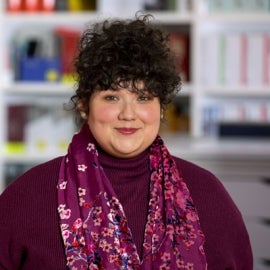 Francesqca Jimenez
Francesqca Jimenez
Senior Social Scientist, HDR
As a Senior Social Scientist at HDR, Francesqca Jimenez thoughtfully investigates the ways in which the built environment impacts human health, performance, and well-being, and applies research methodology and knowledge to complex real-world problems. Francesqca has a Master of Science in Applied Research in Human-Environment Relations from Cornell University’s Department of Design and Environmental Analysis with a minor in Organizational Behavior, and a Bachelor of Arts in Psychology, English and Gender Studies from the University of California-Los Angeles. Her primary research and professional interests are in environmental psychology, linking environments to health and advancing equity through environmental design. In her work, Francesqca endeavors to understand how built, natural and social environments affect behavior, cognition, emotion, identity and representation.
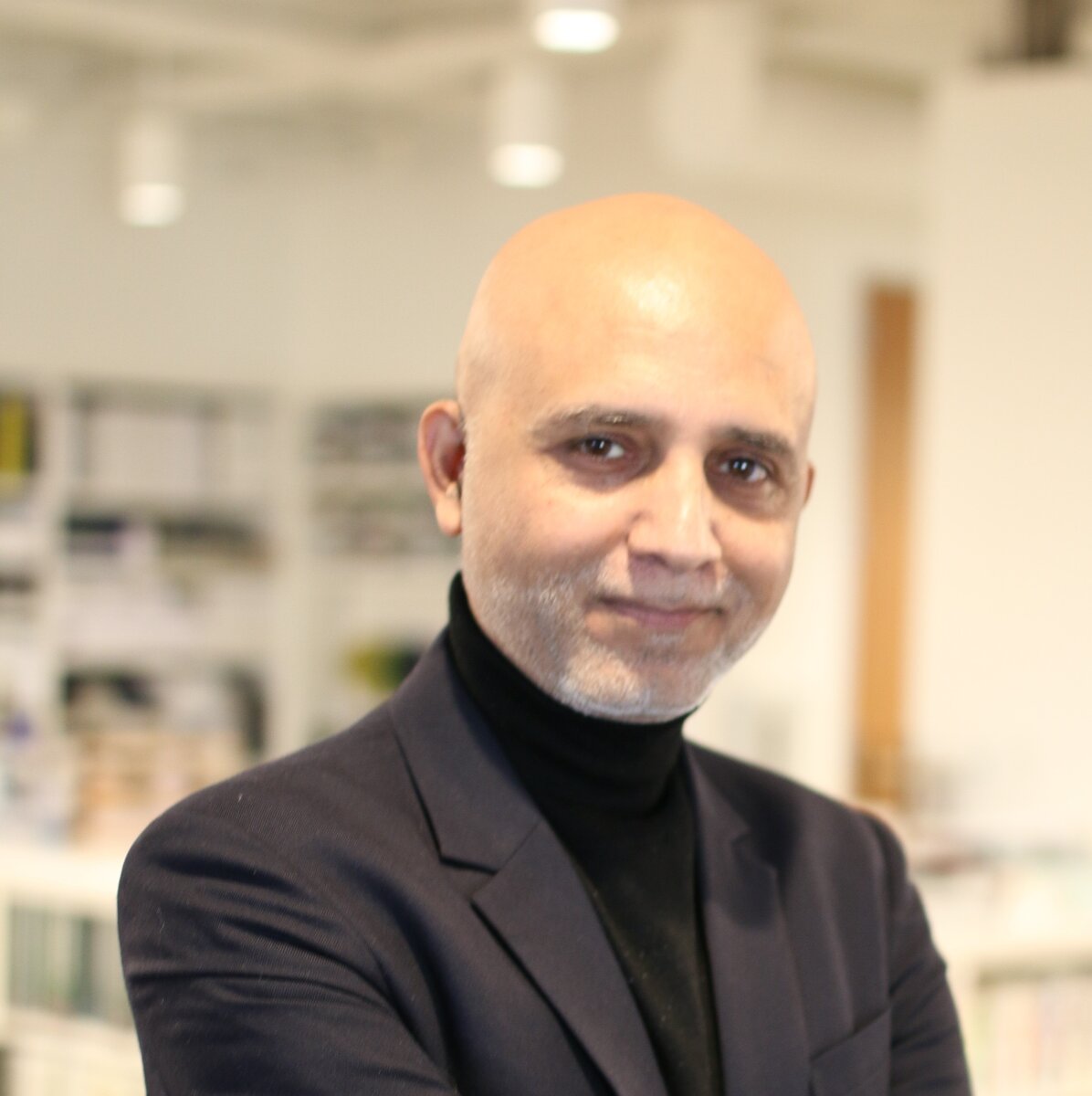 Viren Ahuja
Viren Ahuja
Consulting Principal, HDR
Viren Ahuja is an accomplished leader who has advised some of the best-known healthcare and governmental organizations across the world on the issues of healthcare strategy, growth, population health improvements, and large-scale performance transformations. Viren has deeply researched and influenced emerging thinking on future of healthcare in the wake of rapid advancements in digital systems, analytical capabilities, and medical technologies; and changing nature of healthcare consumers. His expertise has been key in leading transformative changes with major clients such as UCSF Medical Center, Cleveland Clinic Abu Dhabi, National Children’s Hospital in Ireland, and Ministry of Health in Saudi Arabia.
 Jon Crane
Jon Crane
Translational Health Director, HDR
Jon has over 40 years of healthcare and research facility planning experience; he has developed innovative solutions that have transformed care and research environments. Jon brings critical thinking and knowledge relater to diverse issues related to the future of care such as AI impact on the research and healthcare environments; how new therapies such as theranostics and CAR-T cells for immunotherapy will impact facilities; model facilities for clinical research and trials to handle the pipeline of new therapies in the context of precision medicine; models for translational facilities such as cancer centers, brain institutes and rehabilitation institutes. His work with the leading academic medical centers gives him unique insight into how healthcare advancements will impact facility design.
